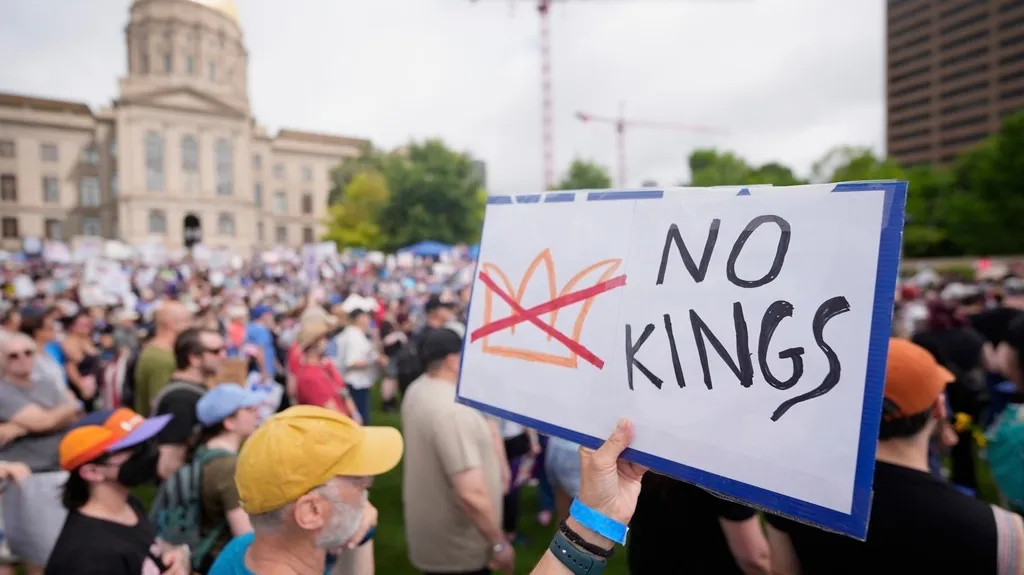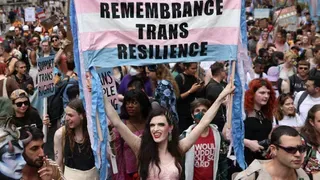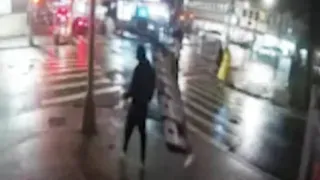April 4, 2018
Tourists Scramble Amid French Train Strikes
Masha MacPherson, Angela Charlton READ TIME: 3 MIN.
French commuters squeezed into scarce trains Wednesday while tourists rearranged travel plans as one of the world's most-traveled rail networks endured a second consecutive day of strike action.
Rail unions and President Emmanuel Macron's government are holding firm so far in a battle over a plan to abolish a benefits system that allows train drivers and others jobs for life.
Macron says that no longer makes financial sense, and the sector needs reform to stay globally competitive - part of his larger plan to change the way the French economy works. It's arguably his biggest challenge since he took the presidency last year.
The SNCF rail authority said 86 percent of trains were canceled nationwide Wednesday, though the number of striking workers fell slightly compared to Tuesday's strike kickoff day - strike action is being planned for the coming three months.
Traffic is expected to resume Thursday, though with some knock-on delays, with the next strike scheduled for Sunday and Monday.
The walkouts are also hitting international traffic: Almost no trains operated Wednesday between France and Italy, Spain or Switzerland while about a dozen Eurostar trains to and from Britain have been canceled. Traffic also dipped to Belgium and Germany.
British accountant Elaine Clark has been dreaming for years of visiting the south of France and is scheduled to visit Cannes this week for the first time - but now the trip is in jeopardy.
"I packed for a holiday that might not happen," she told The Associated Press.
Her outgoing journey should be OK, but a strike is scheduled for the return date Monday, and the travel agency can't be sure her group of 40 travelers will be able to get home. She says she's already spent about 1,000 pounds ($1,400) on the trip, including travel from her home in Cheshire to London, the Eurostar to Paris and then connections to Cannes.
"Monday we could be sitting there, checked out of our hotel room, with our luggage and no hope of a train, and 40-odd people to accommodate. You just know it will be a nightmare," she said. And even if they make it on a train, she expects large, frustrated crowds. "It's not exactly going to be restful."
American travel agents and the British government were among those issuing warnings to tourists. The strike comes at a time of heavy travel, just after the Easter holidays and as schools around Europe have spring breaks.
It's too early to tell whether it will impact France's important tourism sector. More foreign tourists visit France than any other country, according to the government, but many visitors are finding ways to adapt - sharing travel tips online and saturating car-sharing apps.
While strikes are common in France, what's different this time is that unions are threatening rolling strikes over such a long period - a few days every week through the end of June.
France prides itself on its railways, seen as an essential pillar of the country's infrastructure and its public services, and rail workers are fighting to keep their special status and benefits.
The French public seems torn about what's going on.
"There is a portion of it I understand but there is also another part of it - we shouldn't forget we need some change, people need to accept change. We can't be in this conflict forever," said passenger Said Mohammed at the Saint-Lazare station in northern Paris, where commuters packed painfully into trains or waited on overflowing platforms.
Sandrine Allain-Jaoul, 46, said the SNCF should be able to keep its special public service role.
"We shouldn't forget the rural areas where the trains are really important," she said. Criticizing the government's reform methods, which include pushing part of the reform through parliament without a debate, she said, "they are just waiting for the unions, the French people to crumble."






